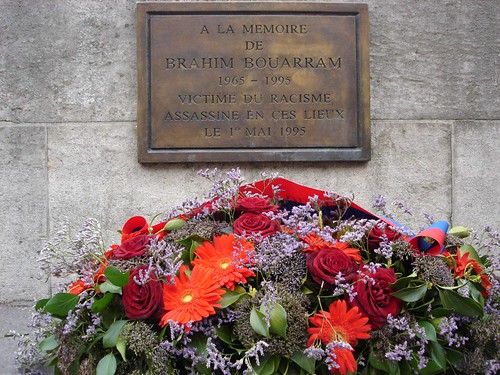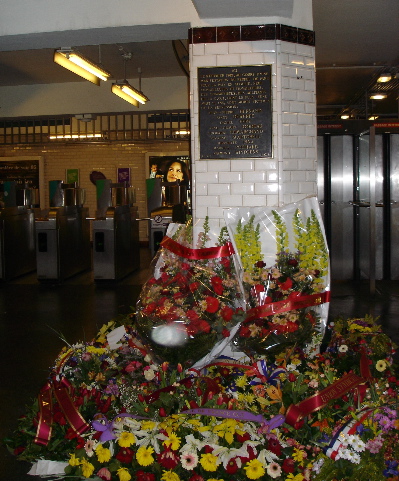Category: "History"
14/09/07
Ethnography under colonialism: what did Evans-Pritchard think of it all?
“When the Government of the Anglo-Egyptian Sudan asked me to make a study of the Nuer I accepted after hesitation and with misgivings” (Evans-Pritchard 1940: 7).
“A Government force surrounded our camp one morning at sunrise, searched for two prophets who had been leaders in a recent revolt, took hostages, and threatened to take many more if the prophets were not handed over. … It would at any time have been difficult to do research among the Nuer, and at the period of my visit they were unusually hostile, for their recent defeat by Government forces and the measures taken to ensure their final submission had occasioned deep resentment. Nuer had often remarked to me, ‘You raid us, yet you say we cannot raid the Dinka’; ‘you overcame us with firearms and we had only spears. If we had had firearms we could have routed you’; and so forth. When I entered a cattle camp it was not only as a stranger but as an enemy, and they seldom tried to conceal their disgust at my presence, refusing to answer my greetings and even turning away when I addressed them” (ibid. p. 11).
There is no other anthropologist I’ve read so extensively and thoroughly as Evans-Pritchard. I love how he makes reference to his arguments over witchcraft with members of the Azande community. His ethnographic descriptions of situations and even individuals in Witchcraft, Oracles, and Magic among the Azande are so “thick”, that you are allowed judge by yourself whether you agree with his theoretical analysis or not. When I reread The Nuer a couple of weeks ago, my hero disappointed me.
The book is nothing but generalisations – there isn’t one event, one situation, one individual mentioned after the short introductory chapter. Not even his one “constant companion in Nuerland” Nhial (p.10), who must have been indispensable in acquiring knowledge of the fierce and hostile Nuers appears in the text proper. He leaves us with an image of Nuer society as a seamless, timeless whole* devoid of real human beings. But as we know from his own introduction, Nuerland is in full anti-colonial revolt at the moment of writing. And in Evans-Pritchard’s own tent, young and proud Nuer men “endlessly visit”, talking about nothing but cattle and girls (which “led inevitably to that of cattle” ![]() ) and asking for tobacco without bothering to answer his questions.
) and asking for tobacco without bothering to answer his questions.
Like anyone who’s been through a graduate course in social anthropology, I was of course familiar with the critique. However, my recent interest in colonial encounters gives an extra edge to reading 70 years old ethnographic descriptions by a white Brit in East Africa (Bourdieu among the Kabyle has certainly moved up on my reading list).
“I … never succeeded in training informants capable of dictating texts and giving detailed descriptions and commentaries. This failure was compensated for by the intimacy I was compelled to establish with the Nuer. As I could not use the easier and shorter method of working through regular informants I had to fall back on direct observation of, and participation in, the everyday life of the people. … Information was thus gathered in particles, each Nuer I met being used as a source of knowledge, and not, as it where, in chunks supplied by selected and trained informants. … Azande would not allow me to live as one of themselves ; Nuer would not allow me to live otherwise. … Azande treated me as a superior ; Nuer as an equal” (Ibid. p. 15).
Between the lines of this cold and “objective” ethnography, I read a lot of respect for the Nuers. But how on earth could this brilliantly alert and bright anthropologist not reflect on his own position as employed by the colonial – and so obviously repressive and violent – government. And equally puzzling: how can he treat the fact that he moves around with black servants (not Nuers, of course!) as such a matter of course? From the previous quote it even sounds like he usually treated his informants as servants… (This classical photo from Monica’s blog apparently gives a good indication of his relationship with the Azande).
A student alerted me to the fact that Evans-Pritchard lead African troops against the Italians in Eastern Africa during the WWII (Wikipedia). After seeing the French film Indigènes (see earlier blog post) on how the French colonial troops were treated during the war, I cannot but wonder how my predecessor treated his own soldiers.
*) This seamless whole is in fact what he wanted, as he writes that he wanted to write a new kind of monograph where the development of theory isn’t drowned in ethnographic detail.
07/10/06
Indigènes
I’ve just been to see the film Indigènes. I don’t cry very often at the cinema, but I must admit that I had problems stopping weeping during the last part. I, and probably the rest of the audience, knew just too well how the film would end and how the story it self would go on for decades afterwards. I saw it on a cinema nearby, with pensioners (white) and local lycéens (of all colours). It shows on 31 cinemas in Paris, with 4-8 screenings each + two in the weekends.
03/05/06
1st of May in Paris
1st of May, in the morning, I cycled through the quiet streets to a bridge by the Louvre Museum. At the Pont du Carrousel, there is a commemorative plate for Brahim Bourram, who 11 years ago, on this day, drowned after he was thrown into the river Seine by skinheads coming from the annual Front National demonstration. Paris Major Delanoë had put down flowers, and every year MRAP – (Movement against racism and for the friendship between the peoples) – arrange a commemorative ceremony. General secretary Mouloud Aounit didn’t have a microphone, and I was too far away to hear what actually was said, but MRAP has posted a statement on their webpage, which I shall quote from as it speaks directly to the current situation in France:
10/02/06
Métro Charonne, 8 février 1962
“Here, the 8th of February 1962, in the middle of a demonstration for peace in Algeria by the people of Paris, 9 male and female workers; communists and union activists, of whom the youngest was 16 years, were killed in the repression. CGT, PCF.”
09/02/06
“The martyrs of Charonne”
Yesterday, I had planned an academic expedition to L’École des Hautes Études en Sciences Sociales again, this time for a lecture on the sociological use of documentaries where they would also screen a “cinema verité” film on young Parisians’ vision on happiness from 1960 (Chronique d’un été). But chances wanted that I should stay in the neighbourhood and, in fact, be witnessing the making of a documentary on recent French history.
31/01/06
A day in commemoration of slavery
The 10th of May is from now on going to be the national day in commemoration of abolition of slavery. 10th of May in 2001 was the day slavery was declared crime against humanity in France, which was the first country in the world to adopt such a law. It was the deputy from French Guiana, Christiane Taubira, who proposed the law, and its been named Loi Taubira after her.
In his speech, President Chirac proclaimed that “the greatness of a country is to take on all its history, the glorious pages as well as the dark parts. Our history is that of a great nation. Look at her with pride. And look at her as she is. That’s the way a people can unite and become more close(-knit).”
(As a foreigner, I do find interesting this constant return to the greatness of the French nation, and I can’t forget another of Chirac’s speeches lately on the issue of nuclear weapons, but be that as it may).
Le Monde greets Chirac’s speech and holds it together with two other speeches as strong and important moments of his reign as President: 16th July 1995 when he for the first time recognised the French state’s role in the deportation of thousands of Jews during the Second World War; 15th August 2004 when he honoured the North African and African veterans’ contribution to the liberation of France and the speech 30 January 2006.
(Again, many others in this country will not remember Chirac for these three speech, but rather for the one 19 June 1991, gone into history as “le bruit et l’odeur” (the noise and the smell), where the President lately so famous for his antiracist stance made speech worthy of Le Pen. I’d really like to say a lot about it, but be that as well as it may for the moment).



